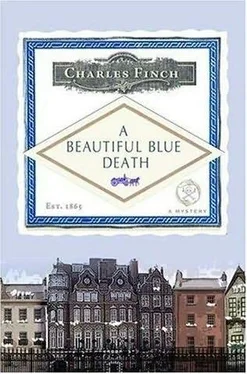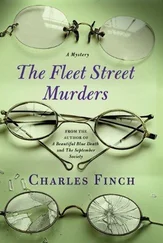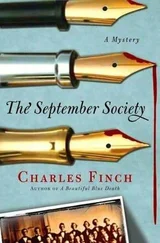Charles Finch - Beautiful blue death
Здесь есть возможность читать онлайн «Charles Finch - Beautiful blue death» весь текст электронной книги совершенно бесплатно (целиком полную версию без сокращений). В некоторых случаях можно слушать аудио, скачать через торрент в формате fb2 и присутствует краткое содержание. Жанр: Исторический детектив, на английском языке. Описание произведения, (предисловие) а так же отзывы посетителей доступны на портале библиотеки ЛибКат.
- Название:Beautiful blue death
- Автор:
- Жанр:
- Год:неизвестен
- ISBN:нет данных
- Рейтинг книги:5 / 5. Голосов: 1
-
Избранное:Добавить в избранное
- Отзывы:
-
Ваша оценка:
- 100
- 1
- 2
- 3
- 4
- 5
Beautiful blue death: краткое содержание, описание и аннотация
Предлагаем к чтению аннотацию, описание, краткое содержание или предисловие (зависит от того, что написал сам автор книги «Beautiful blue death»). Если вы не нашли необходимую информацию о книге — напишите в комментариях, мы постараемся отыскать её.
Beautiful blue death — читать онлайн бесплатно полную книгу (весь текст) целиком
Ниже представлен текст книги, разбитый по страницам. Система сохранения места последней прочитанной страницы, позволяет с удобством читать онлайн бесплатно книгу «Beautiful blue death», без необходимости каждый раз заново искать на чём Вы остановились. Поставьте закладку, и сможете в любой момент перейти на страницу, на которой закончили чтение.
Интервал:
Закладка:
The political situation of the moment was complex. Disraeli had initiated tremendous social reform, but he was a Conservative, and the Liberals were trying to find a match for him. Lord Russell was the Prime Minister and a Liberal, but by common consent he was no Disraeli.
“I should say not.”
“Gladstone?”
“Perhaps in time, my young friend,” Cabot said. “But Disraeli-”
“He will go down in history as a liberal.”
Both men laughed.
“And here we are again. It always signals the time to sip our last sips, when we reach this subject.”
Cabot smiled happily and set the poker against the hearth. Both men rose and began to walk across the great hall. Lenox corrected himself; they were not the last members present. An old white-haired man slept on a chair in the corner, his drink still in his hand. The stewards would leave him alone all night, if he slept. Particularly in a blizzard.
“A ride?” said Lenox.
“No, thank you, dear friend, my carriage should be along any moment.”
Soon both men were on their way home, having promised each other to have supper again soon. Lenox, stepping into his carriage, sighed and leaned back in his seat. Nearly midnight, he thought, looking at his watch. The streets had a ghostly feel. Who walks among us, he asked himself, with a young maid’s death on their hands?
When he reached Hampden Lane, he saw that Graham was still awake; the light in the hallway shone through the front windows. He climbed the steps, opened the door, and saw his butler reading over a set of handwritten notes, in his usual seat along the front hallway.
“Graham,” said Lenox. “How are you?”
“Well, sir, and you?”
“Excellent. Just what I needed to get my mind off the case for an hour or two.”
“I am gratified to hear it, sir.”
“Do you feel more human, Graham?”
“Yes, sir.”
“Had a rotten day?”
“Far from it, sir. I admit I was fatigued by the end of my investigations, sir, but as you kindly suggested a cup of tea and a moment by the fire put me right again.”
“Always does the trick for me.”
“Yes, sir. A good English remedy.”
While they spoke, Graham had removed Lenox’s coat and quickly brushed his hat, while Lenox hung his cane on a hook to the right of the door, by a small table with a silver bowl on it. He dropped his keys in the silver bowl, and they rang out briefly
“In my library, Graham?”
“Yes, sir.”
“Is there a fire?”
“Yes, sir.”
They walked into the library, but instead of sitting in his armchair, Lenox went to his desk and sat down. He motioned Graham toward another chair, by the side of the desk, and then unlocked the top left drawer with a small brass key he removed from his waistcoat pocket. From the drawer he took out a pad of paper and a pencil. Then he locked the drawer again and put the key back in his waistcoat. He cleared a space on the desk, knocking a few books to the ground by accident, and waving Graham off when he tried to pick them up.
“I’ll get them later,” he said.
As a final preparation, he searched through the papers on his desk and at last lit on what he was looking for, a short mahogany pipe with a silver mouthpiece and, next to it, a leather pouch. He painstakingly prepared the pipe, which he only smoked in the evenings, during his quietest hours, lighted it, and then sat back and looked at Graham.
“What did you find out?” he said.
Graham began to speak.
“I will not have the full results of my inquiry into Miss Smith’s character until tomorrow afternoon, sir, if you would be so good as to release me for two or three hours at that time, but I have a full report of the inmates of Mr. Barnard’s house and have confirmed that all of them were present and for the most part in the dining room together, eating lunch, or in the drawing room, playing cards, between eleven and one, the period when Miss Smith ingested the poison.”
“McConnell said twelve and one.”
“Yes, sir, but to be cautious I extended the window, in the remote case that it was ingested earlier than Mr. McConnell determined. It could not have been later, of course, sir, because she died.”
“Go on.”
“As you are no doubt aware, sir, Mr. Barnard will hold his annual ball in four days’ time. The preparations for the event began long ago, and several of the houseguests arrived in the past few days, to stay until the ball ends.
“Except for Claude Barnard, who seems to live with his uncle, the guest who has resided with Mr. Barnard for the longest time is his other nephew, Eustace Bramwell, who is Mr. Barnard’s sister’s son. He is a young man of perhaps twenty-two, sir, who has just come down from Cambridge, where he was in Caius College and studied botany.”
“Botany?”
“Yes, sir. He has been in his uncle’s house for more than a month now and doesn’t work during the day. But he has an active social life, I believe, and is a member of the Jumpers Club, which caters, from what I understand, to the younger members of the aristocracy.”
“Lady Jane’s nephew is a member. Gives her fits. They drink all the time.”
“I believe that to be an accurate picture of life at the Jumpers, sir. Eustace Bramwell spends some of his time there. But he is very proper, according to the servants, and, with the exception of his almost constant lectures on class responsibilities, he is quiet and not troublesome.”
“I see.”
“He was unlikely to come into contact with Miss Smith at great length, sir, and when at home almost never ventured from his room except for meals.”
“But he was in the drawing room after lunch yesterday? December twelfth?”
“Yes, sir. He was painting a picture and conversing with Mr. Barnard’s newest guest, Jack Soames.”
“Soames?”
“Yes, sir, he arrived three days ago. As you know, I’m sure, he is a member of the House of Commons. He had come to stay with Barnard while the two men discussed issues of the mint, I believe, and also because they are close friends in the circles in which they move.”
“Anything peculiar? I know him, more or less.”
“One thing, sir. This may or may not be related to the case, but Mr. Soames, according to the latest reports, is in dire financial straits.”
“Soames! But he’s a bachelor with a fair property, I believe. The House doesn’t pay him, of course, but his constituency must.”
“I fear not, sir. And I hear his property is mortgaged.”
Lenox frowned. He had known Jack Soames for two decades, perhaps longer: a large fair-haired man and former athlete who was well-liked, if not entirely respected, by his acquaintances.
“There was also,” Graham said, “one more political figure in the house, sir.”
“Who is it? Disraeli, I suppose you’ll say, and he owes his tailor two shillings.”
“No, sir, Newton Duff.”
Lenox frowned again. “Duff? Really? Seems so unlikely.”
“He has been there a week. As you know, sir, he is not well-liked, even by members of his own party, but he has been, from what I understand, an effective politician-”
“An understatement. He carried the India bill by sheer will.”
“He may have some political business with Mr. Barnard, sir.”
“He may. Is he meant to stay until the ball?”
“Yes, sir. Although he has his own lodgings, too, from what I understand.”
“I see.”
Newton Duff was, like Soames, a large man, but the resemblance ended there. Soames was fair, Duff was dark; one was friendly, the other gruff; one was ineffective, the other was furiously effective; one was known to drink and dissipate, the other was of an iron constitution. Soames and Duff under one roof?
Читать дальшеИнтервал:
Закладка:
Похожие книги на «Beautiful blue death»
Представляем Вашему вниманию похожие книги на «Beautiful blue death» списком для выбора. Мы отобрали схожую по названию и смыслу литературу в надежде предоставить читателям больше вариантов отыскать новые, интересные, ещё непрочитанные произведения.
Обсуждение, отзывы о книге «Beautiful blue death» и просто собственные мнения читателей. Оставьте ваши комментарии, напишите, что Вы думаете о произведении, его смысле или главных героях. Укажите что конкретно понравилось, а что нет, и почему Вы так считаете.












